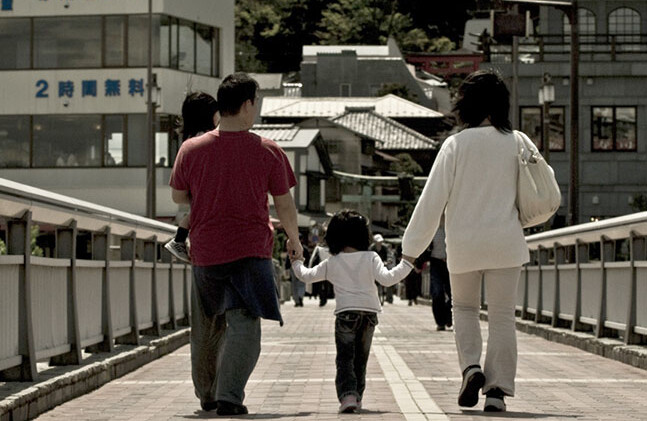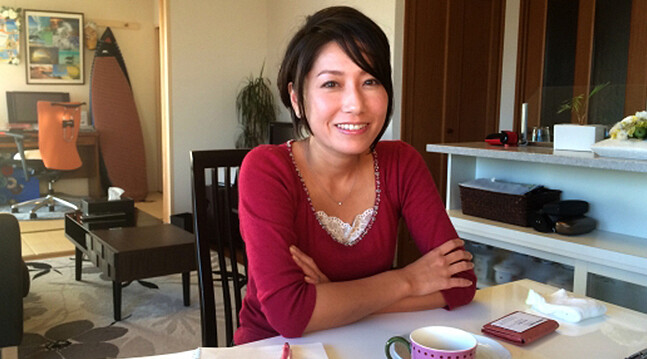In the Global Gender Gap Report, Japan usually ranks around 100 out of 140 countries, says Mari Miura, a specialist on gender in Japan. The main reasons are economic--a huge gender pay gap; political--underrepresentation of women in politics; and cultural--traditional gender and family roles. But younger generations are trying to change these paradigms.
DEVIN STEWART: Hi, I'm Devin Stewart here at Carnegie Council, and I'm here with Mari Miura. She is a professor of political science at Sophia University in Tokyo and also a specialist on gender in Japan.
Mari, thank you so much for talking to me today.
MARI MIURA: Yes.
DEVIN STEWART: Mari, tell me a little bit about your research at Sophia University. What do you specialize in?
MARI MIURA: I am working on contemporary Japanese politics, and social policy, and gender equality policy, and also women's political participation. Particularly recently, I am working on emphasizing women's political participation because women are very much underrepresented in Japan. We have only less than 10 percent of women in the lower house, so I'm working with a cross-partisan caucus to introduce a new bill, which allows political parties to have party lists which provide some concerns toward gender equality.
DEVIN STEWART: How do you understand the basic state of gender equality in Japanese politics? What are some of the driving forces there?
MARI MIURA: There is the measurement of gender equality in the world, which is called the Gender Gap Index, and Japan lags behind compared to other countries. Usually Japan ranks around 100 out of 140 countries. The basic reason is that there is still a huge gender pay gap between men and women in the economy. The other reason is that underrepresentation of women in politics.
DEVIN STEWART: What is causing those gaps in both the economy and politics?
MARI MIURA: First of all, there is a huge pay gap between regular workers and non-regular workers in Japan. Currently 40 percent of workers are so-called non-regular workers, including part-time workers or dispatch workers. Those non-regular workers receive less job security and are paid less, and about 60 percent of women actually are non-regular workers. That is one reason.
The other reason is that, even if we compare regular male workers and regular women workers, still we can find a huge pay gap. The pay gap is about 70 percent. Usually in other affluent countries the pay gap is around 80 percent, so you can see that Japan lags behind with respect to pay equality.
The major reason is that many women cannot keep working due to the lack of day care centers and some other reasons. Once women have their first child, two-thirds of women actually quit their jobs. If you quit a job, it will be very difficult to find the next job. That's the main reason that we still have a huge pay gap in Japan.
DEVIN STEWART: You mentioned day care centers. Are there any other policy measures that could be implemented that would help the situation?
MARI MIURA: The long working hours need to be tackled. The working hours are notoriously long in Japan. Both men and women have to work for longer hours. For this reason, many women cannot really keep working because women—even though they have a family responsibility and even though they have to take care of their children—have to accept long working hours, which is almost impossible for women with family responsibilities. The government needs to enforce regulations to reduce working hours. The government has not done much on this topic.
DEVIN STEWART: Are you optimistic that the government can do something about the number of working hours?
MARI MIURA: No. Actually labor unions also bear responsibility. Labor unions and also employers have labor contracts which allow employers to make workers work for long hours. So there is no incentive to reduce working hours. Especially since labor unions are dominated by men who think that wages are more important than working hours, there is no pressure coming from labor unions or coming from employers, and the government is not more serious about working hours' regulation. That is why I'm not so optimistic.
One of the optimistic scenarios would be that the government is very much concerned about demographic decline. In order to increase the birth rate, the government needs to deal with working hours eventually. But we need to still wait for the moment.
DEVIN STEWART: Do you see something in Japanese society that could actually break through and make some change possible, like education or—
MARI MIURA: You mean like public opinion that is coming from the Japanese workers' side?
DEVIN STEWART: Yes.
MARI MIURA: I don't see that yet. This is sort of a cultural issue. Many men think that working for long hours is—they need to show some sort of commitment and loyalty to companies—a kind of work ethic. So for them it really makes sense to stay for long hours at their companies, and they are exempt from family responsibilities.
If there is some kind of change, that could be coming from the younger generation of men who want to rear their children. The younger generations are also more likely to commit to child care, so if that kind of fathering or fatherhood movement becomes stronger, then that might trigger some change.
DEVIN STEWART: This sort of generational change, is there anything that is helping that?
MARI MIURA: I think so, yes. It is very much generational. The older generations never thought about taking care of their children. The younger generations think that that is more fun and that raising their children provides some joy to their lives. So there is some cultural shift depending on generations. So we need to wait for new generations.
DEVIN STEWART: I'm curious. What is causing that cultural shift?
MARI MIURA: When I talk to college students, the men think that it's a cool thing to take care of their children or they think that at least they have to participate in some sort of household activities like doing dishes, or cooking, or things like that. And the majority of couples are double-income households these days. So I think that it is getting more natural for men to participate in family responsibilities. And there is some discourse that it's more fun actually to take care of kids. So there is some change.
But there is not much of that environment yet because older generations—their bosses are from the older generations also, and their bosses don't understand that kind of thing yet. There is some conflict between younger generations and older generations about the value of child-caring.
DEVIN STEWART: Do you see a role for educators to play in helping to foster change?
MARI MIURA: Maybe, but it's more—I don't think that educators are very much emphasizing the role of men. It's more like a spontaneous change and a culture shift driven by the fact that many more women participate in the labor market, so there is some pressure coming from their wives, definitely.
DEVIN STEWART: Interesting. There have been some recent court cases. What do you make of, for example, the Japanese Supreme Court ruling on issues regarding marriage and people keeping their last names or changing their last names?
MARI MIURA: According to the Japanese civil code, a married couple has to choose one family name. In 90 percent of the cases they choose the men's family names, so women have to give up their maiden names and they need to take their husband's name. Many women complain about it and they say that it's more practical to keep using their maiden names. Some women say that this is an identity issue and they don't want to change their names, even though they want to legally marry.
There was a case and a Supreme Court ruling last year in December. The Supreme Court said that it is not unconstitutional to force a same family name. That was a big disappointment to those who support separate family names.
Actually the Japanese government was about to enact a law to allow separate family names in the late 1990s, but there was a huge backlash movement coming from right-wing people and then that movement stalled.
Recently, last year, the Supreme Court ruled that the same family names enforcement is not unconstitutional. Now it's the role of the Diet, the Assembly, whether or not they change the law or not.
The current government is very conservative. Within the ruling parties there are lots of people who disagree with separate family names. So separate family names is a very acute political issue. It is something equivalent to the abortion issue in the United States, and people very much fight over the issue. It's a very sensitive issue in Japan.
DEVIN STEWART: Why do you think the Supreme Court ruled the way it did?
MARI MIURA: There is not much gender balance in the Supreme Court either. There are fifteen judges and there are only three women. The three women said, "That's unconstitutional." I think that the gender perspective matters. The Supreme Court judges are not so liberal these days, and they are also very much influenced by the conservative discourse. The majority opinion was that it makes sense to have the same family name because the family is a fundamental societal unit. That is the typical conservative way of thinking: The family is a social unit, the social basic unit, so therefore it is very much legitimate for the state to regulate the way in which family is formed. The family name is one of the core elements, that family is family because all the members use the same name. That is a key sub-identity or a bonding issue. That is the conservative way of thinking in Japan.
DEVIN STEWART: What are the prospects for getting more gender diversity on the Supreme Court?
MARI MIURA: Since this is a very sensitive political issue, and also the conservative religious group thinks that this is really the core agenda for them, it seems to me that it is very difficult to change the civil code.
The compromise could be that the government introduces some bill which allows women to use many names. Japan has a family registration law. So all of the family-members, every single person, has to register in the family registration. It is not individual registration.
For example, the United States does not have such a system; you just have a birth certificate. But in Japan you register your name under the family registration. The older individuals belong to some family and that's why everybody, all the members of the family, should have the same family name.
The conservatives don't want to change this family registration law, which is a very nice tool for the state to control individuals through families. They don't want to give up the family registration law.
The compromise could be that the working women can use their maiden names as just a business name. That could be a compromise. In this case, women have two names: at their workplaces they use business names, which are their maiden names, but on the family registration they use family names. That could be a compromise.
DEVIN STEWART: Are you involved with advising the government on any of these issues?
MARI MIURA: I'm involved in the quota bill.
DEVIN STEWART: Can you tell us about that a little bit?
MARI MIURA: Yes. There is a cross-partisan caucus which aims to introduce a quota bill. A quota is a system which asks for the parties to set a maximum quota for either sex. For example, when parties nominate candidates, 30 percent of the candidates need to be women or less than 60 percent need to be male. The quota can be allocated—any allocation. Gender quota is the quota for either women or both sexes about the ratio of their representation.
DEVIN STEWART: How is it going? Are you seeing progress?
MARI MIURA: Yes. But some constitutionalist scholars think that a quota could be unconstitutional in Japan. So the cross-partisan caucus was very much cautious about introducing a bill which has very strong enforcement measures. What they are thinking about is just introducing a bill which sets out with the principle of gender proportionality. They are trying to draw up a draft, which currently says that "the parties have to respect parity." Parity means 50/50, the parity between men and women, when they nominate candidates. So there is no obligation, but this is just more of a commitment to the principle.
Even though this just a moral bill, I think if the law is passed it will have a huge impact. It means all parties need to respect gender equality with respect to candidate nomination.
I am the advisor to this cross-partisan caucus, so I have been providing some ideas about how to write the bill.
DEVIN STEWART: Even if it's not enforceable or binding, you think that the bill operating on the principle of gender parity is effective?
MARI MIURA: Yes, I think so, because so far, especially in terms of politics, people didn't pay attention at all to women's underrepresentation. This is quite recent that people started to know the fact that there is less than 10 percent in the Assembly, in the Diet. Slowly it is getting on the agenda. But still many people don't even know the facts. So, I think, even though the bill will be just a moral issue—there's not much of an enforcement mechanism in it—still, it will have a huge impact.
This is something for all the parties to make a commitment to gender equality. It will state they support the bill. The civil society organizations can exert pressure and the media has started to compare all the parties with respect to the ratio of women in nominations. It's going to be a good start.
DEVIN STEWART: This has been a great conversation, Mari.
Just as a final question, as people look at Japan and are looking for signs of change, what kind of things do you think people should look at?
MARI MIURA: In terms of change? What I think is that cultural changes actually are taking place. You can look at the demonstration last year. It is a big change. Two years ago the Japanese people were very quiet and Japanese people didn't really much pay attention to politics. People were not interested in politics. But these days, people have started to actively commit to politics. I'm not saying the majority of the people do that, still the ratio is a minority, but the younger generations have started to think about their future and they have started to think that they need to commit to politics; otherwise, they might be at a huge disadvantage.
So culture is changing. Two years ago or three years ago it was not so cool to talk about politics. But these days some people think that it is a cool thing to actually go to the street and make claims or make demands. That kind of political culture can be changed, and it is changing. That's a new hope, I think.
The election is coming up, an upper house election is scheduled in July. And also the voting age was reduced to 18 years old. It used to be 20 years old, but starting from this July, 18-year-olds can also cast a vote. That creates a new chance or opportunity to provide civic education or political education.
I think that the culture surrounding politics and political participation, or political participation of the youth, has been changing quickly. That is, I think some sort of the change that people who want to know about Japan should definitely take a look at.
DEVIN STEWART: That's a great optimistic note to end on, Mari.
MARI MIURA: [Laughter] Yes. I am always optimistic.
DEVIN STEWART: Thanks so much for your time. It was great to talk with you.
MARI MIURA: Thank you very much.





